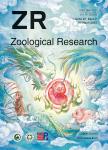Enterococcus faecalis provides protection during scavenging in carrion crow (Corvus corone)
作者机构:CAS Key Laboratory of Animal Ecology and Conservation BiologyInstitute of ZoologyChinese Academy of SciencesBeijing 100101China College of Life SciencesUniversity of Chinese Academy of SciencesBeijing 100049China Beijing Milu Ecological Research CenterBeijing 102600China Beijing Capital International Airport Co.Ltd.Beijing 101300China
出 版 物:《Zoological Research》 (动物学研究(英文))
年 卷 期:2024年第45卷第3期
页 面:451-463页
核心收录:
学科分类:0710[理学-生物学] 07[理学] 0713[理学-生态学]
基 金:supported by the National Key Research and Development Program of China(2022YFC2601602) Major Program of National Natural Science Foundation of China(32090023) Beijing Wildlife Rescue Center,China。
主 题:Carrion crow Facultative scavenger Gut microbiota Enterococcus faecalis 16S rRNA sequencing
摘 要:The gut microbiota significantly influences host physiology and provides essential ecosystem services.While diet can affect the composition of the gut microbiota,the gut microbiota can also help the host adapt to specific dietary habits.The carrion crow(Corvus corone),an urban facultative scavenger bird,hosts an abundance of pathogens due to its scavenging behavior.Despite this,carrion crows infrequently exhibit illness,a phenomenon related to their unique physiological adaptability.At present,however,the role of the gut microbiota remains incompletely understood.In this study,we performed a comparative analysis using 16S rRNA amplicon sequencing technology to assess colonic content in carrion crows and 16 other bird species with different diets in Beijing,China.Our findings revealed that the dominant gut microbiota in carrion crows was primarily composed of Proteobacteria(75.51%)and Firmicutes(22.37%).Significant differences were observed in the relative abundance of Enterococcus faecalis among groups,highlighting its potential as a biomarker of facultative scavenging behavior in carrion crows.Subsequently,E.faecalis isolated from carrion crows was transplanted into model mice to explore the protective effects of this bacterial community against Salmonella enterica infection.Results showed that E.faecalis down-regulated the expression of pro-inflammatory cytokines tumor necrosis factor alpha(TNF-α),interferon gamma(IFN-γ),and interleukin 6(IL-6),prevented S.enterica colonization,and regulated the composition of gut microbiota in mice,thereby modulating the host’s immune regulatory capacity.Therefore,E.faecalis exerts immunoregulatory and anti-pathogenic functions in carrion crows engaged in scavenging behavior,offering a representative case of how the gut microbiota contributes to the protection of hosts with specialized diets.



